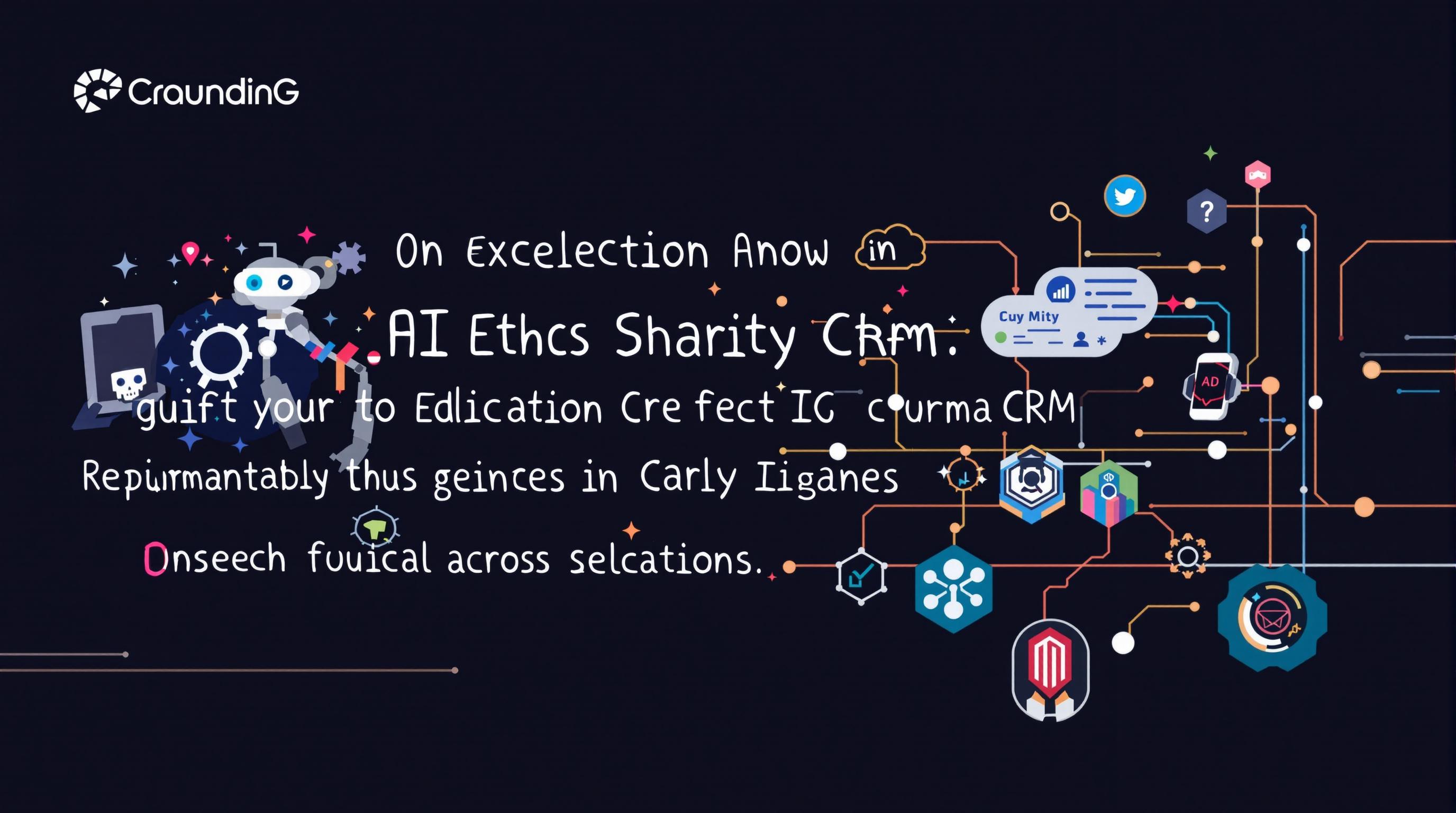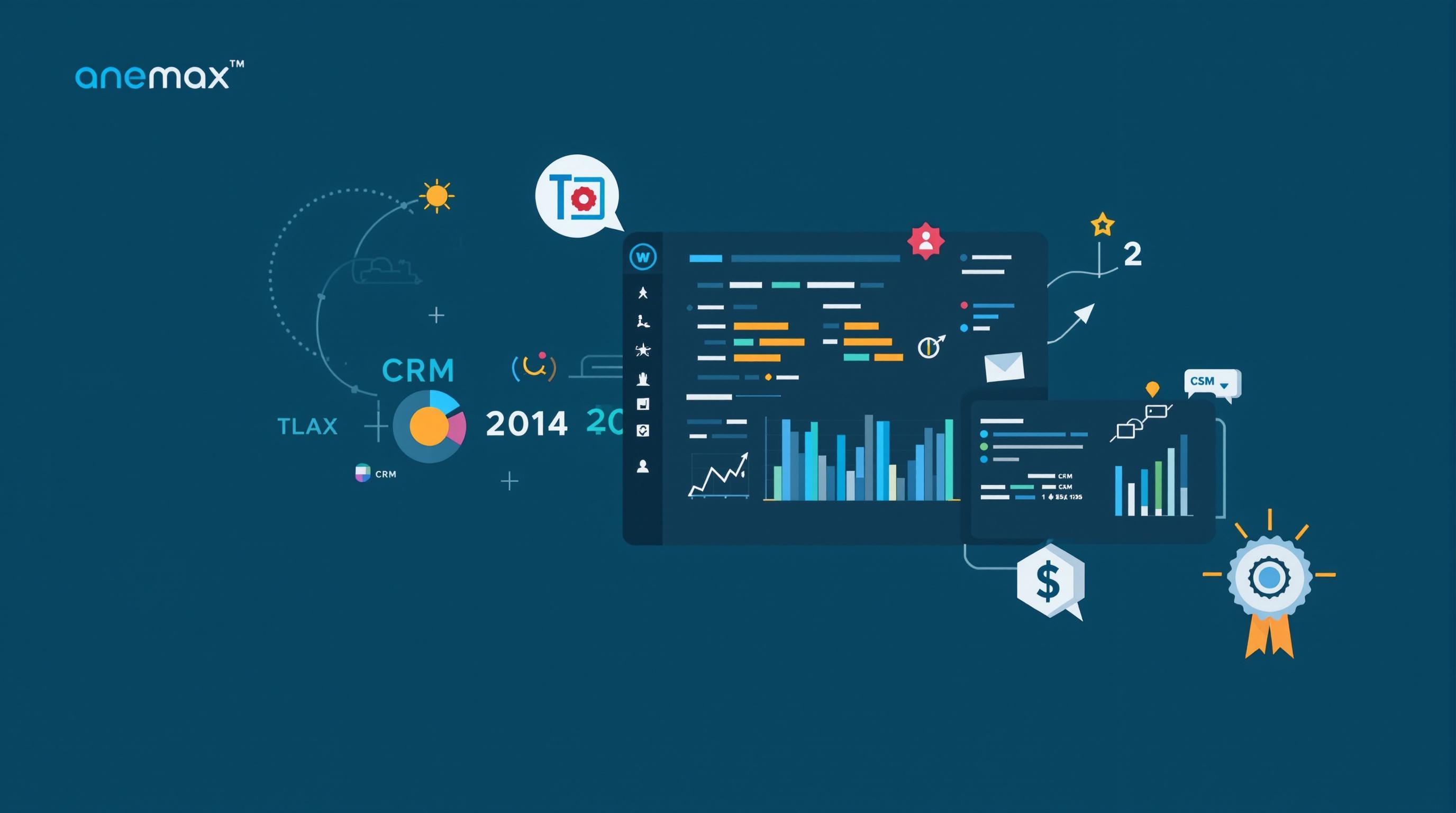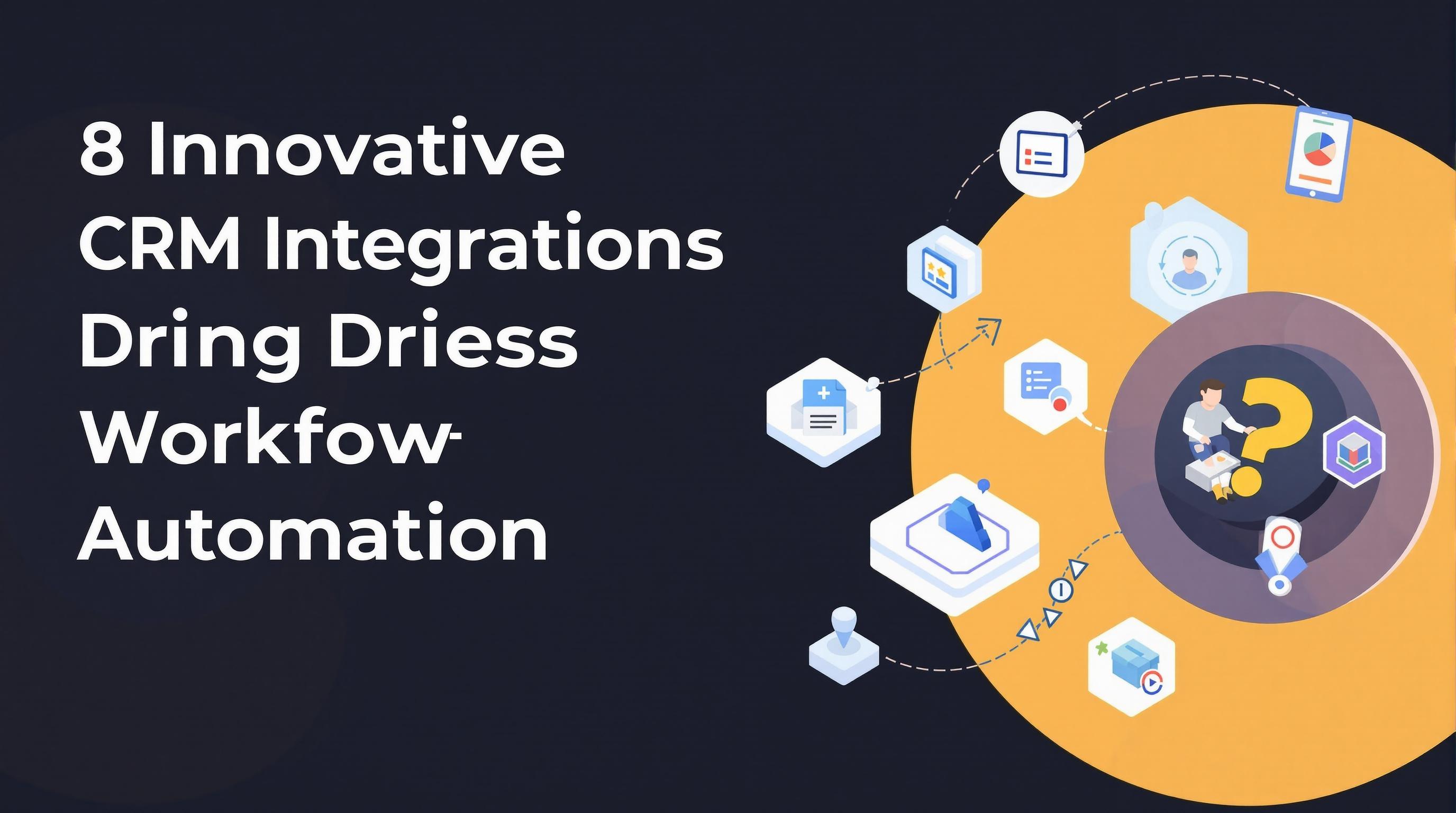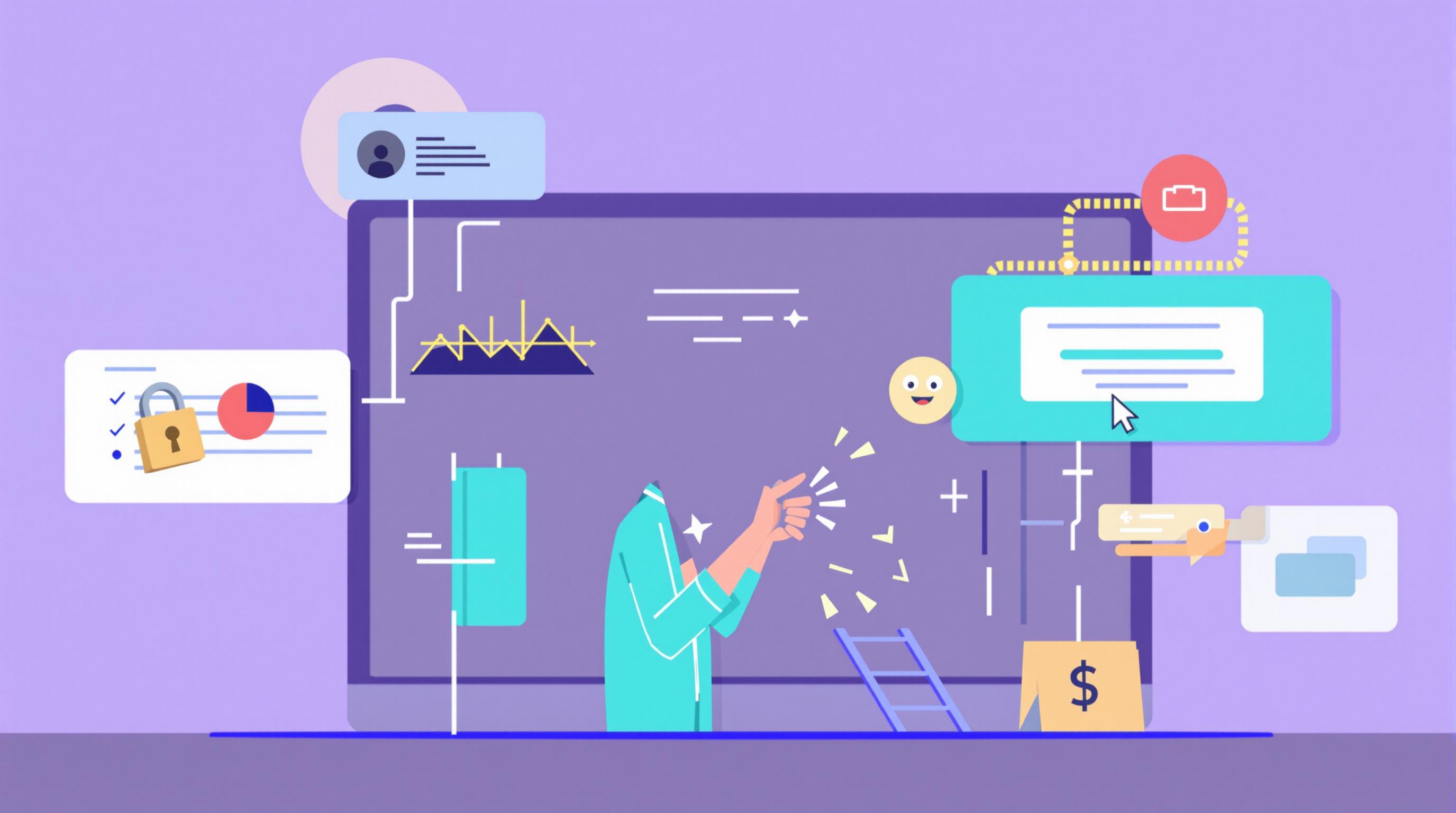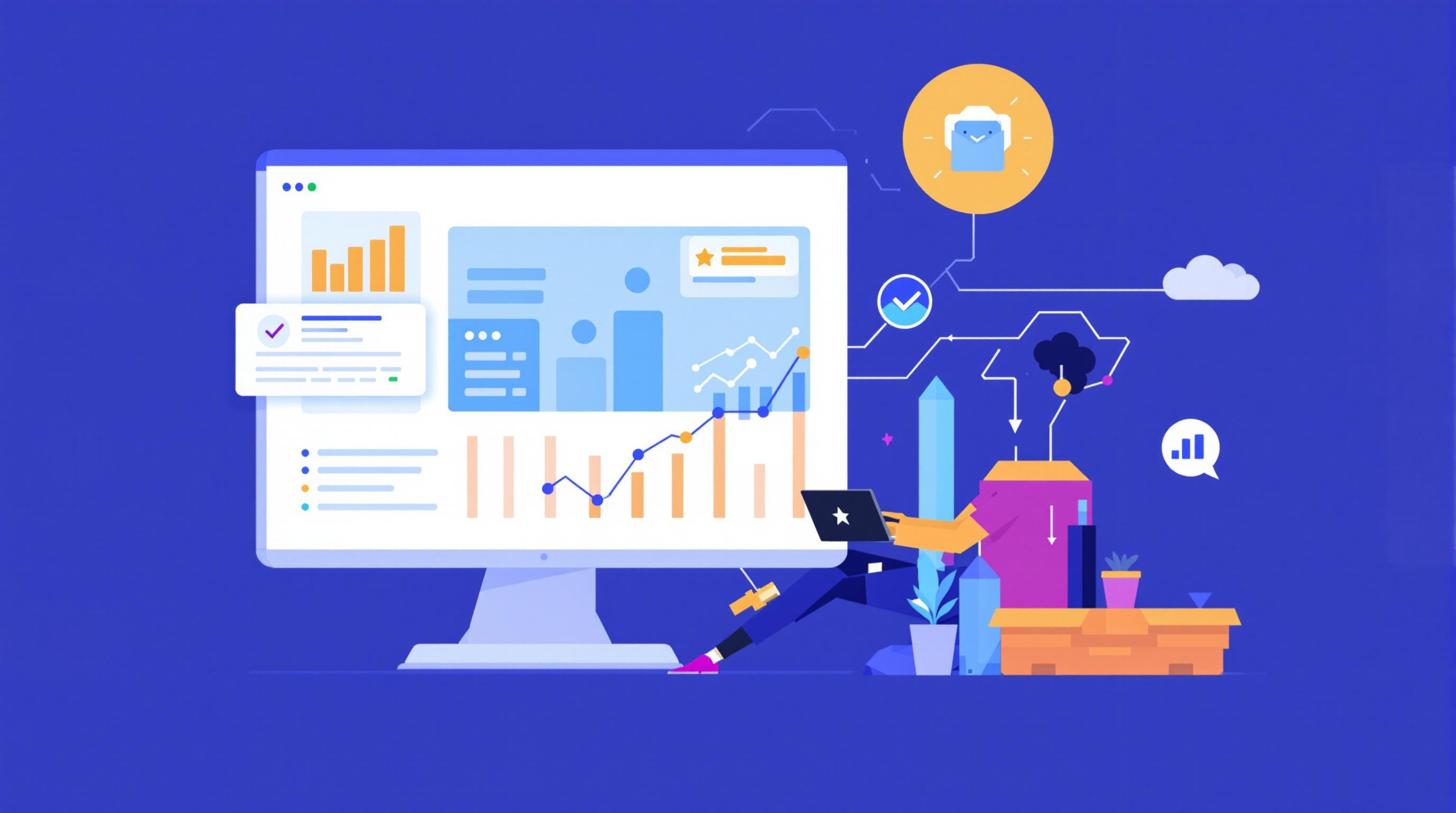Related Articles
- Exploring the Role of Emotional AI in Resolving Conflicts Within Customer Support Interactions
- Top 6 Breakthrough Pricing Engines Launched Since 2019 That Redefine Value Perception and Buyer Behavior
- How HR Software Is Quietly Shaping Workplace Culture Beyond Metrics and Performance Tracking
- The Surprising Influence of Workplace Architecture on Team Dynamics and Project Success in Business Ventures
- 7 Lesser-Known Marketing Automation Tools Released Since 2019 That Outsmart the Giants
- Top 6 CRM Platforms Released Since 2019 That Are Redefining Automation and User Experience in 2024
How AI Ethics Shape CRM Selection: Unseen Challenges in Automating Customer Relations Across Sectors
How AI Ethics Shape CRM Selection: Unseen Challenges in Automating Customer Relations Across Sectors
AI ethics deeply influence how companies select their Customer Relationship Management (CRM) systems, unveiling hidden complexities in automating customer interactions across industries. This article explores the nuanced challenges and ethical considerations that shape CRM choices, highlighting real-world examples and diverse perspectives.
Let me tell you a story. Imagine a small healthcare startup that introduced an AI-driven CRM to manage patient communications. Initially, it seemed revolutionary—automated reminders, personalized care tips, seamless appointment scheduling. But then, patients began complaining about privacy breaches and impersonal interactions. The startup had neglected crucial ethical safeguards, demonstrating that technology alone isn't enough; ethics must be baked into CRM automation.
Understanding the Ethical Foundations
AI ethics in CRM is not merely a tech buzzword but a cornerstone of responsible business practices. It involves fairness, transparency, accountability, and privacy. In industries like healthcare, finance, and retail, ethical CRM use safeguards not only customer data but also the trust that defines the relationship.
According to a 2023 report from Gartner, 58% of businesses cite ethical considerations as a primary factor in CRM procurement decisions—a steep rise from just 33% five years ago. This surge reflects growing awareness that ethics influence reputation, compliance, and customer loyalty.
The Cloak of Automation: Invisible Ethical Risks
Now, let's get conversational here. Everyone loves automation—it saves time, reduces errors, and scales customer service. But behind the curtain lies a darker side. When AI algorithms in CRMs make decisions without human oversight, biases creep in. For example, a CRM might prioritize communication with high-value customers, neglecting others unfairly. Such biases don’t just hurt business—they undermine ethical responsibility.
Take the financial sector, for instance. Wells Fargo faced backlash over biased lending algorithms embedded in their customer management systems, which inadvertently discriminated against minority applicants. These unseen AI biases amplified existing social inequalities and sparked regulatory scrutiny. It’s a potent reminder: ethical AI design isn’t optional—it's imperative.
Case Study: Retail CRM and Privacy Paradox
HomeGoods, a leading furniture retailer, implemented an advanced CRM that used AI to analyze shopping behaviors and tailor promotions. Their system could predict when customers would likely buy new items, sending perfectly timed offers. But then, customers began expressing concerns about the intrusive nature of this tracking. Here, the retailer confronted the "privacy paradox": consumers want personalized experiences but resist invasive data use.
The resolution? HomeGoods revamped their CRM strategy, incorporating explicit consent frameworks and transparent data policies, which boosted customer trust and retention by 22% over six months.
Humor Break: The CRM That Knew Too Much
Picture this: A CRM so smart it accidentally schedules coffee orders for customers who never drank coffee in the first place. Awkward! While we chuckle at such mix-ups, it’s a real issue—AI systems sometimes misinterpret data, leading to robotic and irrelevant interactions. Ethical AI demands constant monitoring and fine-tuning to prevent these digital faux pas.
The Role of Human Oversight
Automation isn’t synonymous with abandonment. Successful CRM implementations embed human checkpoints. Ethical frameworks recommend periodic audits, bias detection, and transparent feedback mechanisms. This hybrid approach balances efficiency with empathy, vital in sectors like healthcare where patient nuances matter.
Consider the experience of a multinational insurance firm that integrated AI-driven chatbots in their CRM. Customer satisfaction initially dipped due to robotic responses. By adding human agents to oversee AI interactions and intervene when necessary, satisfaction rates soared by 35%, underscoring the human-AI synergy.
Regulatory Environments and Compliance Across Sectors
Across sectors, regulatory pressures shape the ethical landscape of AI-powered CRMs. Europe’s GDPR imposes stringent data protection rules, compelling companies to prioritize compliance in CRM design. Meanwhile, the U.S. Fair Credit Reporting Act (FCRA) affects financial CRMs, ensuring fairness in automated credit decision-making.
Interestingly, startups sometimes struggle more than established firms because ethical compliance requires resources and expertise that early-stage ventures may lack. Collaboration with legal experts and ethicists is increasingly common, particularly for those targeting global markets.
Balancing Personalization with Privacy: A Statistical Insight
Did you know 73% of consumers prefer companies that are transparent about AI use in CRM? Yet, 46% worry about misuse of personal data. This duality makes CRM selection tricky: firm ethical foundations must underpin technological capabilities.
Netflix’s approach to customer data demonstrates a best practice—using aggregated and anonymized data to refine recommendations without compromising individual privacy. Such models inspire CRM developers toward ethical design that respects privacy while delivering value.
Playing Devil's Advocate: Is Ethical AI Always Practical?
Now, let's stir the pot a bit. Some argue that in hyper-competitive markets, prioritizing ethics delays innovation and increases costs. Is it realistic for every company to build flawless AI ethics into its CRM? Frankly, the ethical ideal and business pragmatism often collide.
However, ignoring ethics can backfire severely—legal penalties, brand damage, and lost customer trust are costly consequences. Thus, ethical AI in CRM is both a moral imperative and a strategic necessity.
The Impact of Sector-Specific Needs on Ethical CRM Deployment
Not all sectors face the same ethical challenges. Healthcare demands extreme privacy and accuracy. Retail prioritizes transparency and consent. Financial services focus on fairness and anti-discrimination.
For instance, a pharma company using AI-powered CRM must ensure that automated patient communications do not violate HIPAA regulations while maintaining empathy. Contrastingly, an online gaming platform’s CRM may focus more on real-time engagement ethics, such as avoiding manipulative tactics that encourage overspending.
Ethics Beyond Compliance: Brand Identity and Customer Loyalty
Ethical AI isn’t only about avoiding pitfalls—it's a competitive edge. Customers today increasingly reward brands reflecting their values. A Salesforce survey found that 64% of consumers are loyal to brands with strong ethical stances, particularly about data privacy and AI transparency.
Thus, CRM selection influenced by AI ethics goes beyond checklists; it molds brand identity and fosters long-term loyalty, transcending sectors and demographics.
The Young and the Old: Demographic Dimensions of Ethical Concerns
Interestingly, younger consumers (16-30) tend to be more skeptical and demanding about AI ethics in CRM, expecting transparency and data control. Older demographics value privacy but may be less aware of ethical implications, focusing more on usability and service quality.
Companies must, therefore, craft CRM solutions that consider these varying expectations, adding another layer to the ethical decision-making matrix during system selection.
Conclusion: AI Ethics as a Compass in CRM Selection
As AI-driven CRMs become ubiquitous, the hidden ethical challenges shape not just the technology but the business ethos itself. Companies across sectors must embrace AI ethics not as a burden but as a guide for sustainable customer relationships. Through transparent practices, human oversight, and sector-specific customization, ethical AI can transform CRM from a transactional tool into a trust-building partner.
Ultimately, selecting a CRM infused with ethical AI principles is a critical step toward future-proofing customer relations in a world where trust is the ultimate currency.
